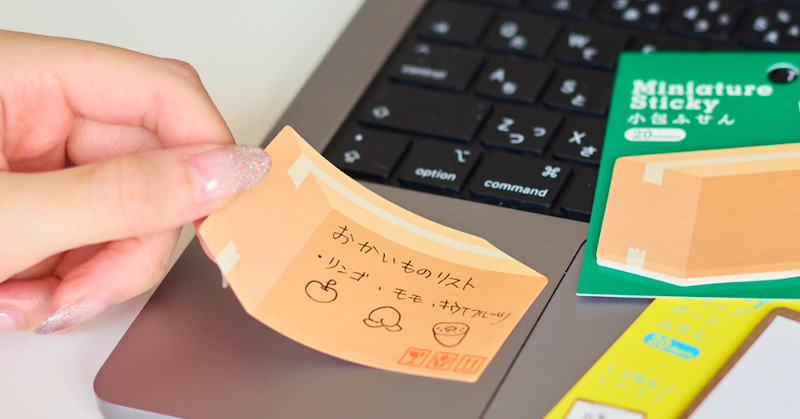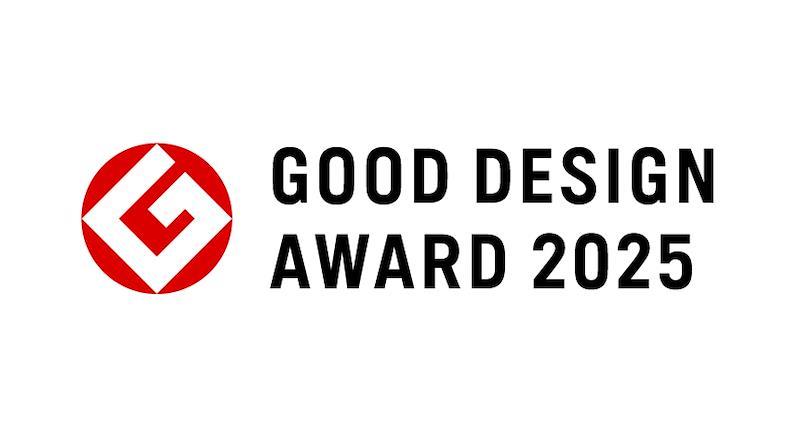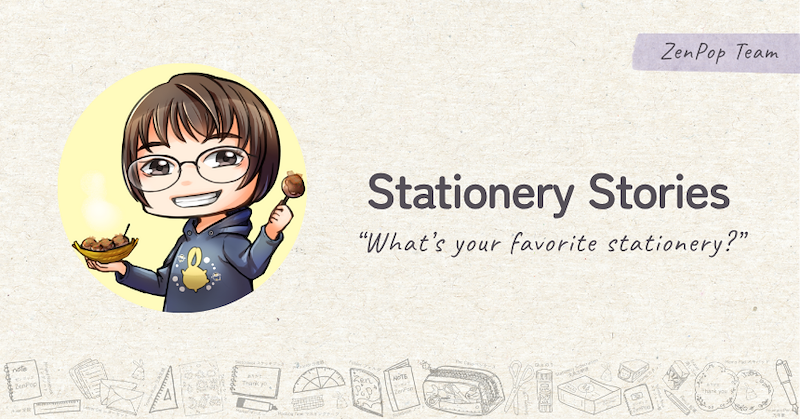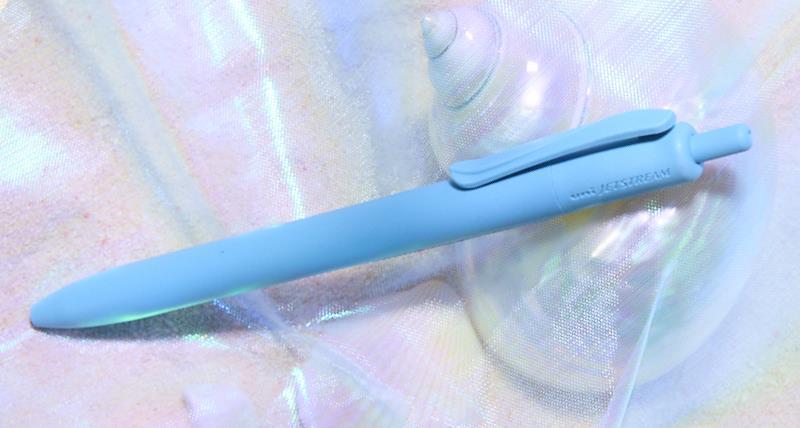
4 Eco-friendly Japanese Stationery Items Made with Ocean Plastic
When we think of reducing plastic waste, stationery might not be the first thing that comes to mind. But pens, clips, erasers, and notebooks—used daily by students, professionals, and creators alike—add up quickly. Thankfully, a new wave of eco friendly stationery is proving that thoughtful design can also be sustainable.
In Japan, where craftsmanship and attention to detail are highly valued, stationery brands are leading the way in creating beautiful, functional items made from recycled materials, including ocean-bound plastics. This blog explores how these products are made, why they matter, and which brands are helping us write a greener future.
- What Is Eco Friendly Stationery?
- Why Ocean Plastic Matters
- Innovative Eco Friendly Stationery from Japan
- Other Noteworthy Eco Stationery from Japan
What Is Eco Friendly Stationery?
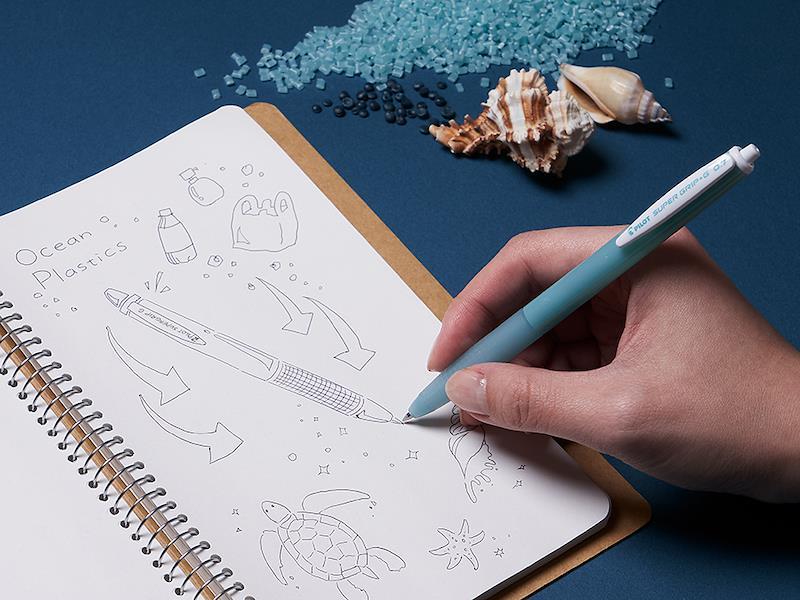
Eco friendly stationery refers to writing tools and paper products designed to reduce environmental impact. This can include:
- Items made from recycled or biodegradable materials
- Products that are refillable or reusable
- Tools that help reduce waste by extending usability or eliminating disposables
In Japan, many stationery makers are going a step further—transforming waste from the ocean, coasts, or the beverage industry into creative and practical tools.
Why Ocean Plastic Matters
Each year, millions of tons of plastic enter our oceans, harming marine life and polluting ecosystems. Ocean-bound plastic refers to waste that is discarded near coastlines or rivers and is highly likely to end up in the sea.
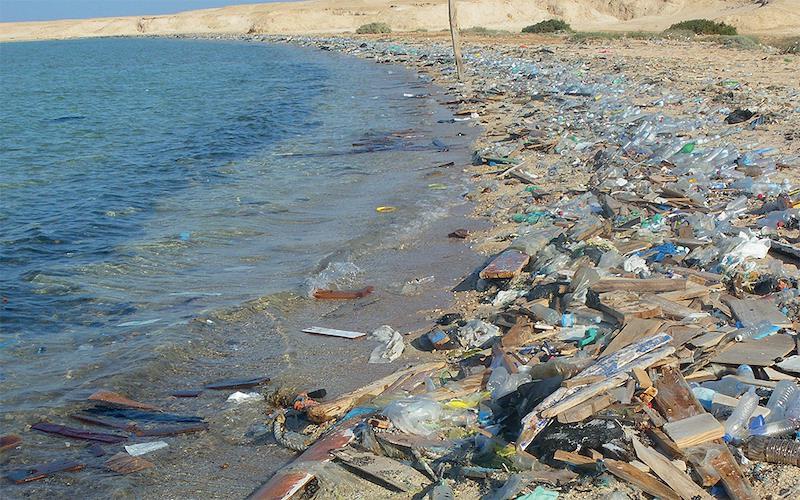
Several Japanese stationery companies are addressing this issue head-on by incorporating recovered ocean plastic or fishing nets into their product designs. These efforts not only prevent pollution but give plastic a second life in the form of everyday tools we can use and appreciate.
Innovative Eco Friendly Stationery from Japan
Here are some standout examples of Japanese stationery that combine design excellence with sustainable innovation:
Pilot SuperGrip G Ocean Plastic Pen
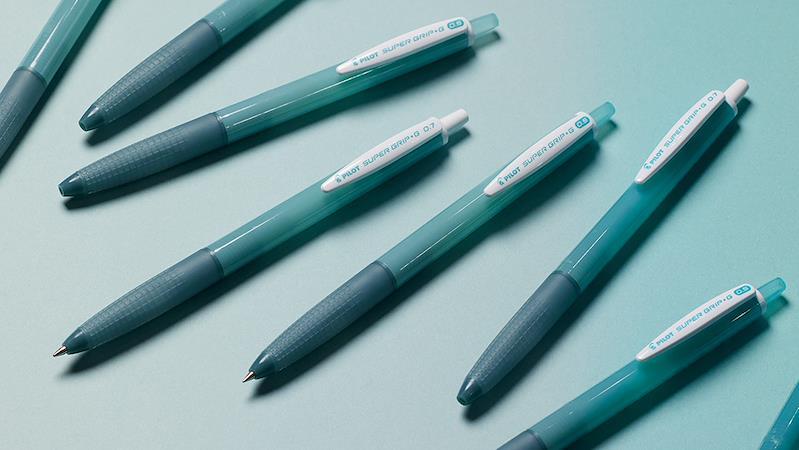
This sleek, turquoise pen is made from 74.1% recycled materials, including 2% ocean plastic collected from waterways, lakes, and beaches. Pilot released this model in 2020 as part of their broader mission to design pens with lower environmental impact.
- Refillable and long-lasting
- 0.5mm tip for smooth, precise writing
- Ergonomic rubber grid grip for comfort
This pen proves that sustainability can still feel stylish and refined.
Uni Jetstream Ocean Plastic Pen
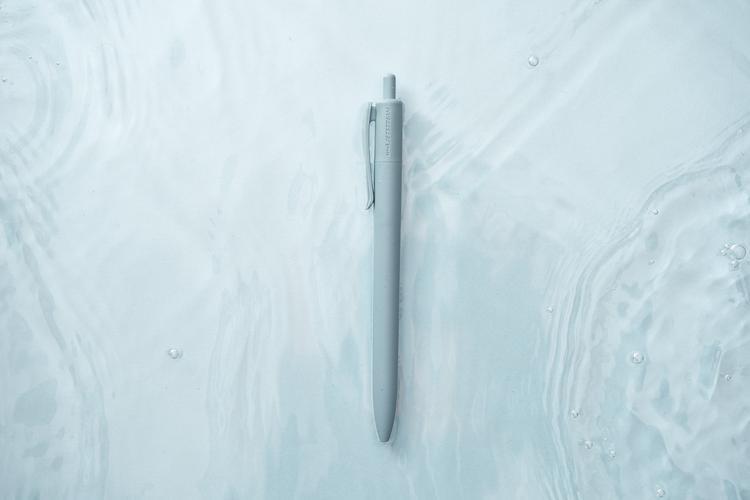
Known for its ultra-smooth writing and fast-drying ink, the Jetstream series by Mitsubishi Pencil is a go-to favorite for students and professionals alike. In 2023, Uni took this bestselling pen in a greener direction with the release of the Jetstream Ocean Plastic model—a bold step toward reducing marine waste.
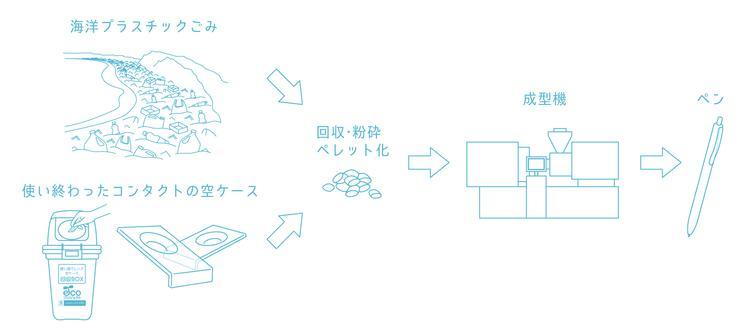
The body of this pen is made from recycled plastic recovered from coastal areas and waterways, developed through a partnership with The Ocean Plastic Recovery Project, an initiative led by TerraCycle Japan. The project focuses on intercepting plastic waste before it reaches the ocean and turning it into functional, long-lasting tools.
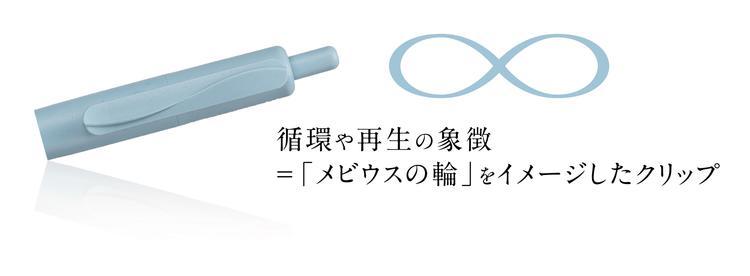
Key features include:
- 0.5mm ballpoint tip with Jetstream’s signature hybrid ink: smooth like a gel pen, but fast-drying like a ballpoint
- Refillable ink cartridge for extended use
- It features a matte finish and a minimalist design that blends easily into everyday life. The clip is shaped like a Möbius strip—symbolizing recycling and rebirth.
This pen is also included in ZenPop’s Marine Dream Stationery Box, offering an inspiring example of how everyday tools can make a difference—one line at a time.

LIHIT LAB × Surfrider Foundation Pen Pouch
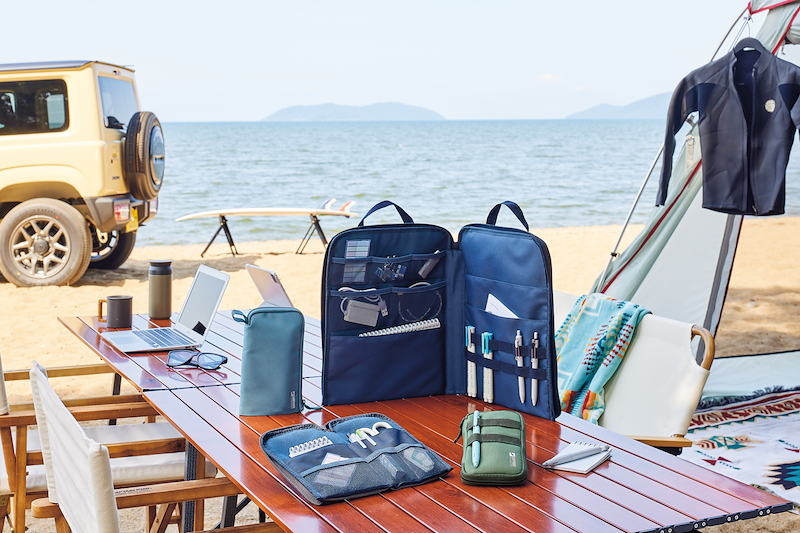
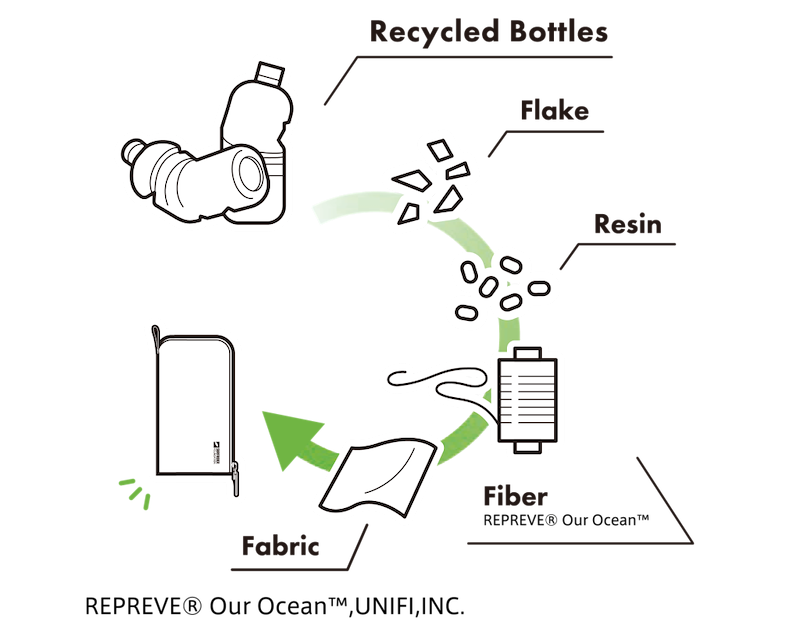
This minimalist pouch is made from ocean-bound plastic waste, collected within 50 km of coastlines—an area where discarded plastics are highly likely to end up in the sea.
Developed in collaboration with the Surfrider Foundation Japan, it’s a compact, functional case designed with sustainability at its core.

Look for the plastic bottle icon on each item—this shows how many recycled 500ml PET bottles were used in its production, offering a clear and tangible way to understand your environmental impact.
Kokuyo NeoCritz Pen Case (Fishing Net Edition)
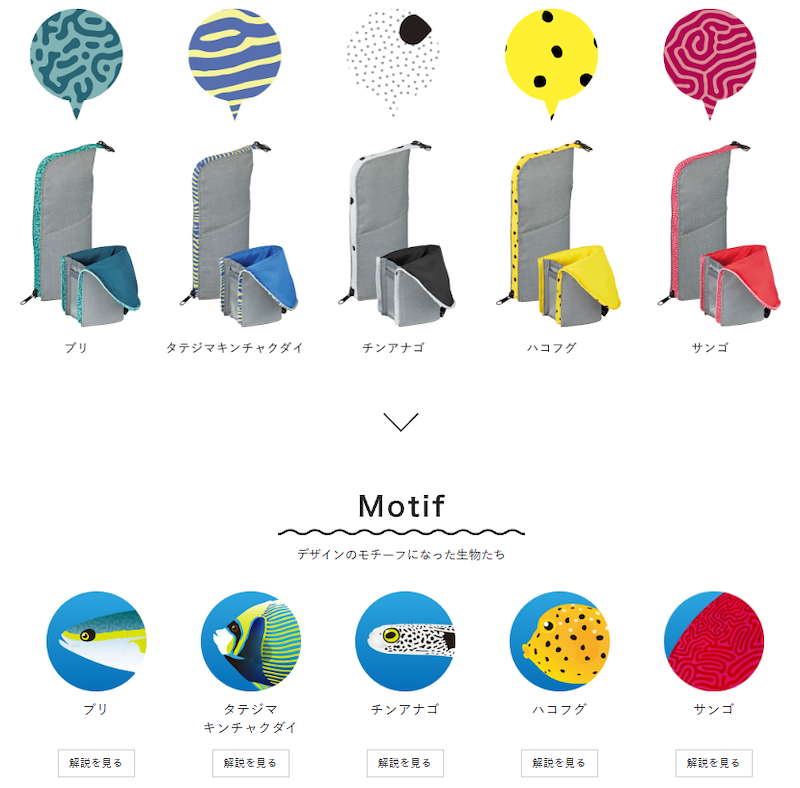
A clever pen case that transforms into a standing pen holder—now made using recycled fishing nets, one of the most dangerous forms of marine waste. It’s a great example of turning environmental harm into helpful design.
At first glance, the NeoCritz looks like a sleek zippered pouch—but unzip it, fold down the top, and it transforms into a standing pen holder that brings vertical convenience to your desk.
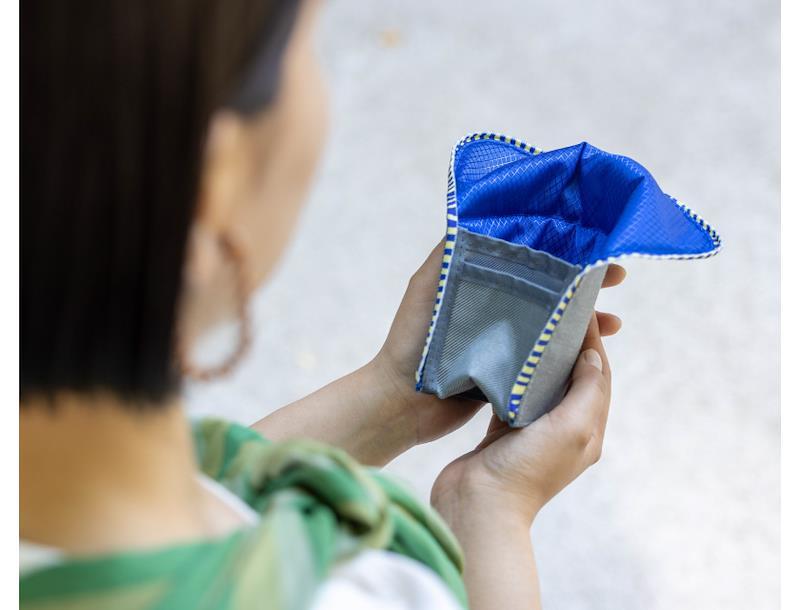
In this special edition, Kokuyo goes a step further by using recycled fishing nets as the primary material—an innovative step toward reducing one of the ocean’s most harmful types of plastic waste. Abandoned or lost fishing nets, also known as “ghost nets,” are notorious for entangling marine animals and damaging ecosystems. By reclaiming and repurposing them, Kokuyo gives these nets a new life as something both beautiful and functional.
This NeoCritz model still offers the same smart features:
- Holds up to 15 pens
- Self-standing design for easy access
- Compact and lightweight, ideal for students or creatives on the go
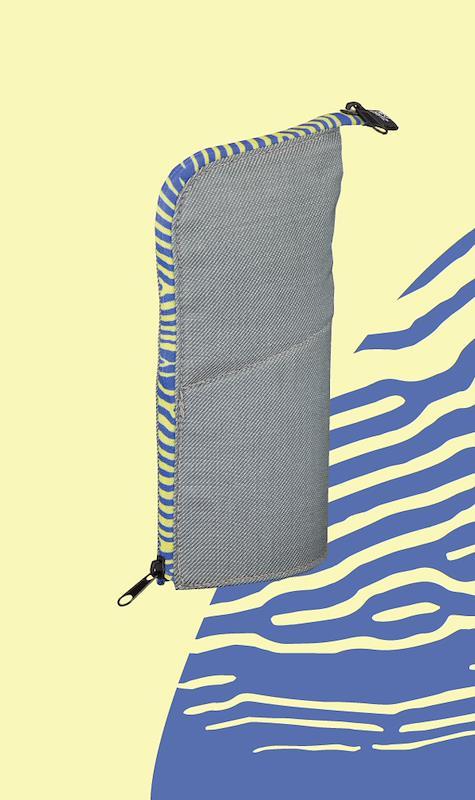
Each pen case includes a unique hangtag detailing the story of how it was made from marine debris, inviting users to reflect on the connection between daily tools and ocean conservation.
Other Noteworthy Eco Stationery from Japan
Not every innovation focuses on ocean plastic—some products use plant-based, biodegradable, or recycled materials from daily life. Here are a few worth discovering:
Tombow MONO Natural Eraser
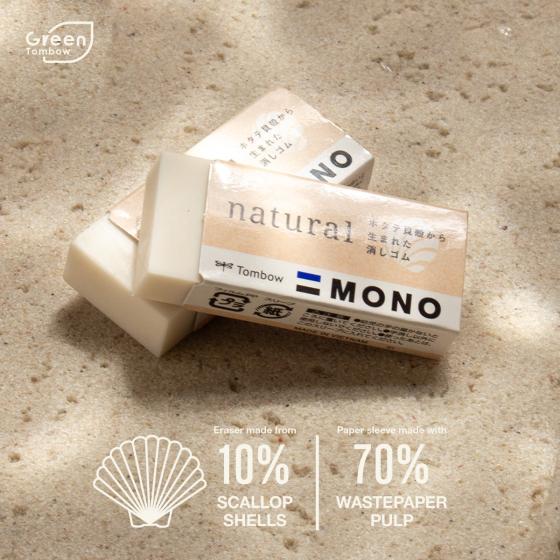
Made using biomass materials, including scallop shells, released in April 2024.
KINGJIM Tea Leaf File
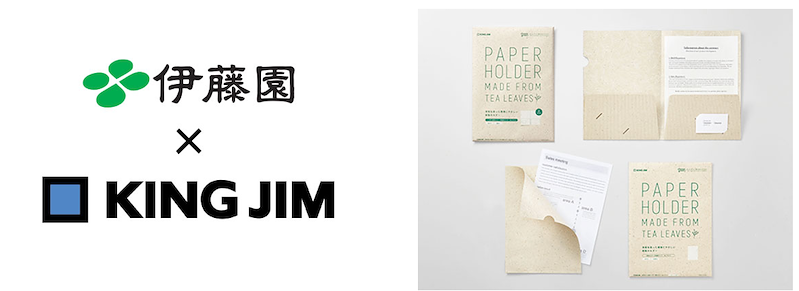
A file folder made from recycled tea leaves using ITO EN’s "Used Tea Leaves Recycling System."
EARLY CROSS Kabuki Paper Clip
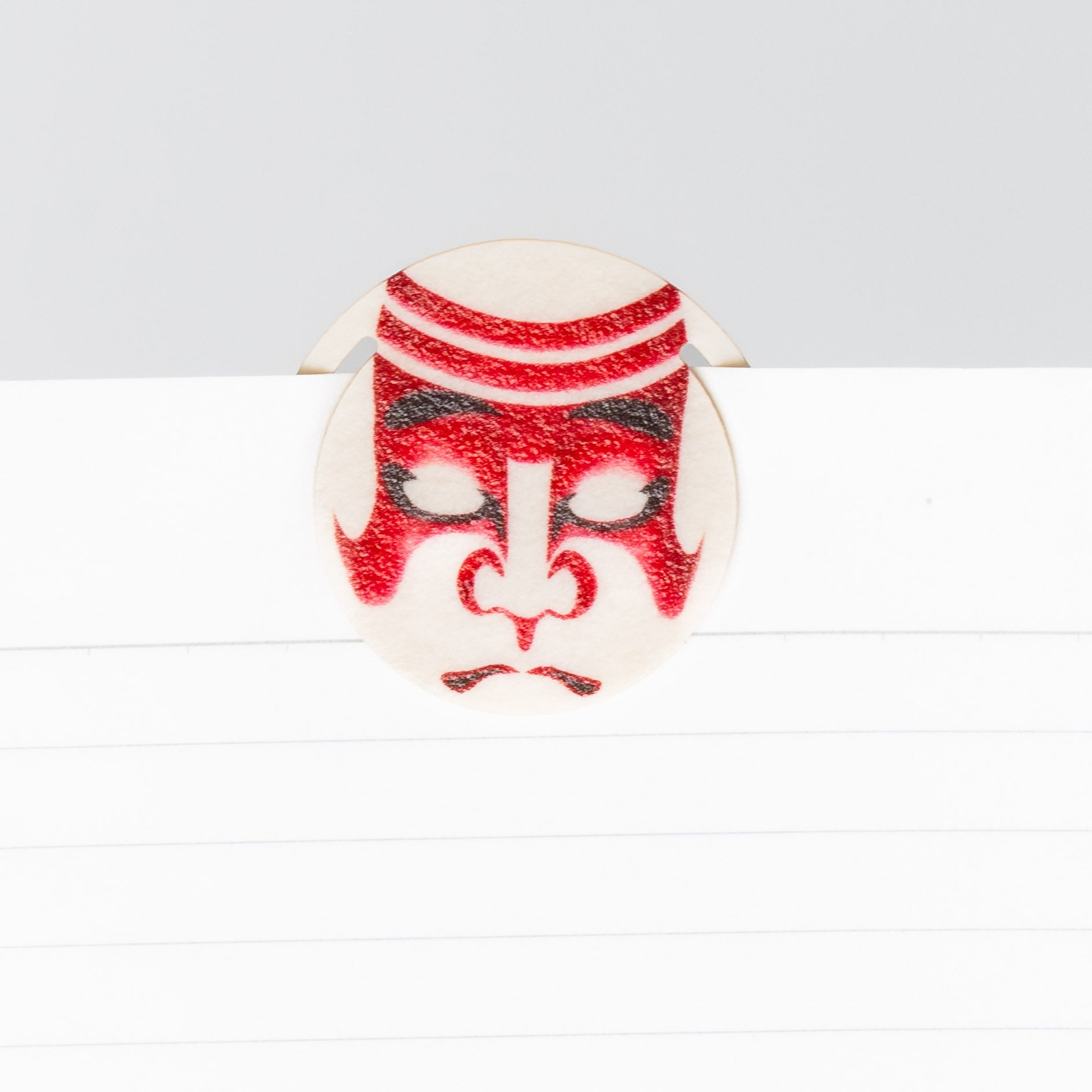
Paper-based paper clips that can firmly hold documents, avoiding single-use plastics. There are 3 different patterns and all are available at ZenPop Stationery Store.
Sun-Star All-Lead Pencil (全芯鉛筆)
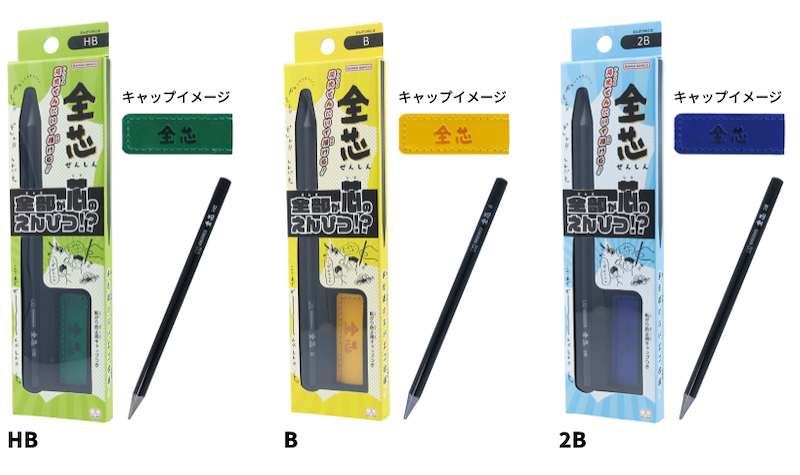
A pencil made entirely from graphite core, eliminating the need for wood.
PLUS Kaite Memo Pad
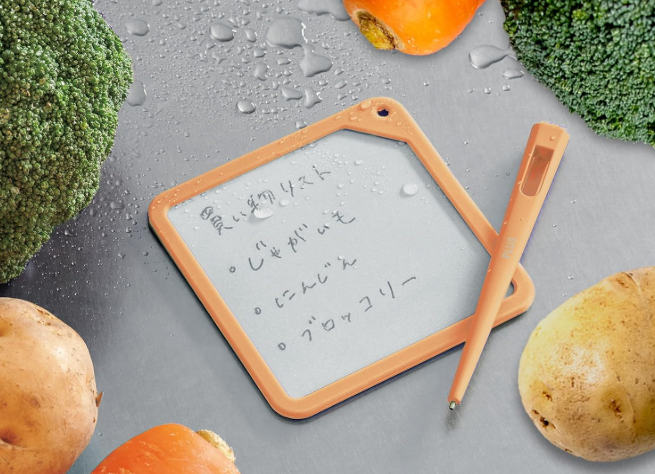
A reusable writing pad with a special film surface. Write, erase, and reuse without any paper waste. You can get them at ZenPop Stationery Store now.
mt UPcycle Masking Tape

Crafted from recycled coffee filters, and awarded Best Masking Tape in the 2025 Japanese Stationery Awards.
YAMATO wemo PETTA – Reusable Sticky Notes Made to Last
If you love sticky notes but wish they were less disposable, wemo PETTA offers a thoughtful alternative.
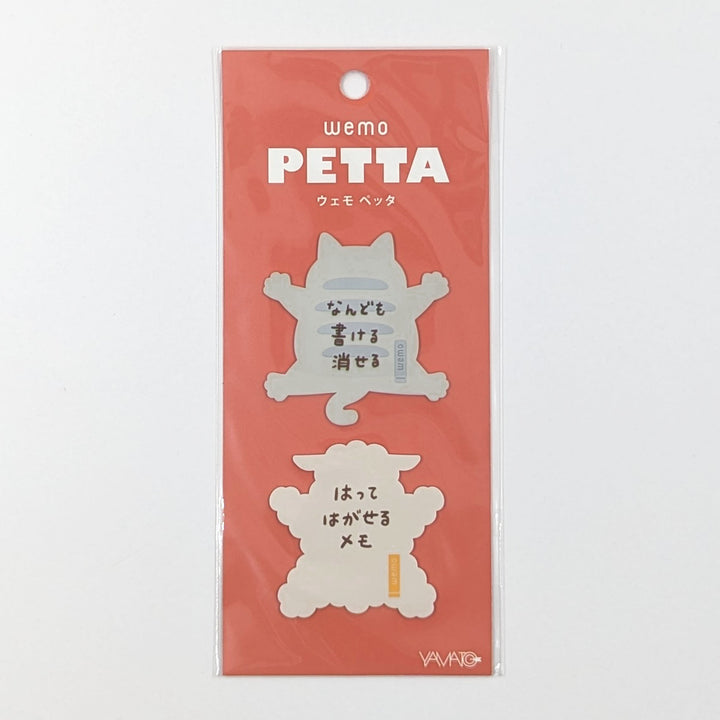
Made from soft, flexible silicone, PETTA notes are designed to be written on, gently erased, and reused again and again. Instead of tossing paper notes at the end of the day, you can simply wipe them clean and start fresh. It’s a small shift—but one that reduces everyday paper waste over time.
Each note features the adorable back view of an animal, adding a subtle, playful presence to your desk, laptop, or planner. When you place them down, they attach with a satisfying little “peta,” staying securely in place while still peeling off cleanly without residue.
Thanks to a special surface coating, PETTA works beautifully with oil-based ballpoint and gel pens. When your plans change, just erase and reuse.
Recommended Pens
For the best writing experience, try pairing PETTA with:
- ZEBRA: Sarasa, Jim Knock
- MITSUBISHI PENCIL: Uni-ball One, Uni-ball Signo, Uni-ball Zento
- PILOT: Juice, Juice Up, Frixion Ball
- PENTEL: EnerGel
- SUNSTAR: Mute-on
- SAKURA CRAYPAS: Ball Sign iD
By choosing reusable tools like wemo PETTA, you’re not just organizing your thoughts—you’re reducing waste while keeping your workspace playful and personal. Sustainable stationery doesn’t have to be plain. Sometimes, it simply sticks around a little longer.
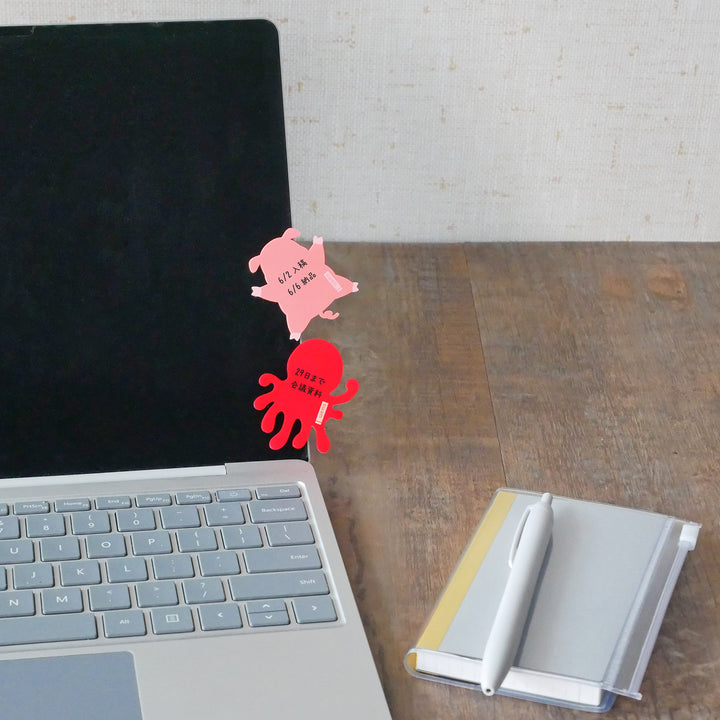
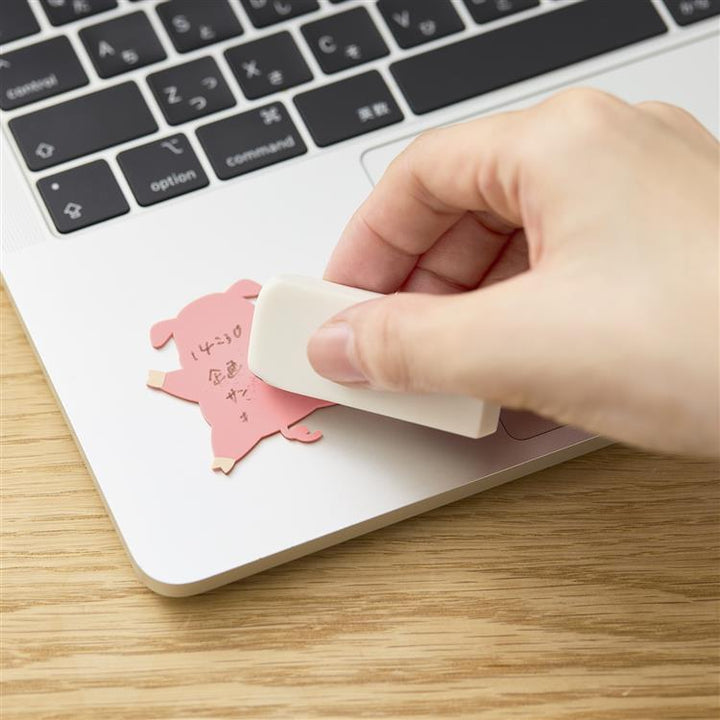
Image source: YAMATO
Small Tools, Big Impact
Choosing eco friendly stationery isn’t just about replacing plastic—it’s about rethinking how we interact with everyday tools. Each refillable pen or paperless memo pad is a step toward a more mindful, sustainable lifestyle.
Whether you're journaling, planning your day, or preparing for exams, these tools allow you to express yourself while caring for the planet.
Try Ocean-Inspired Stationery Yourself
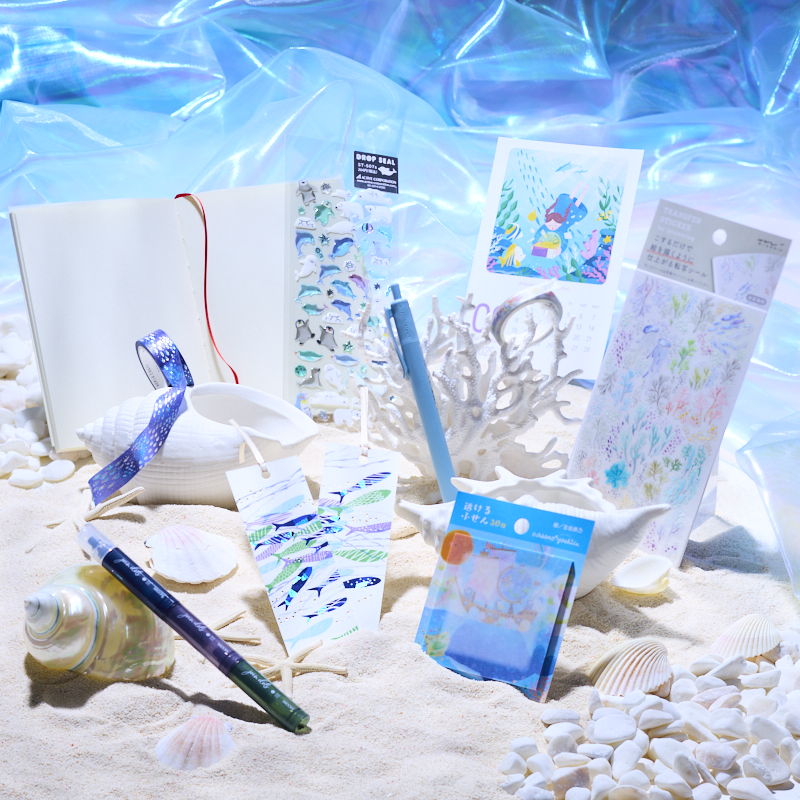
If you’re curious to try some of these innovative items, ZenPop’s latest Marine Dream Stationery Box features the ocean-friendly uni Jetstream ocean plastic pen. It’s a gentle introduction to sustainable writing tools—and a beautiful way to bring the calm of the ocean to your desk.
Final Thoughts: Stationery with a Purpose
Eco friendly stationery is more than a niche trend—it’s a growing shift in how we design and consume everyday items. In Japan, where craftsmanship and respect for materials are deeply embedded in the culture, stationery brands are leading by example.
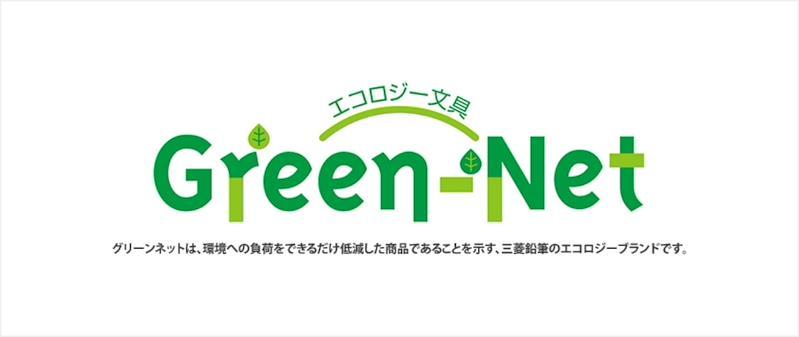
For instance, Greem-net is Uni’s eco-focused product line, featuring items that meet Japan’s Green Purchasing Law by using at least 40% recycled plastic, and also carry the Eco Mark certification, which requires 70% or more recycled content by weight.
By choosing tools made from recycled or renewable materials, you're not just writing notes—you're helping write a better future.
